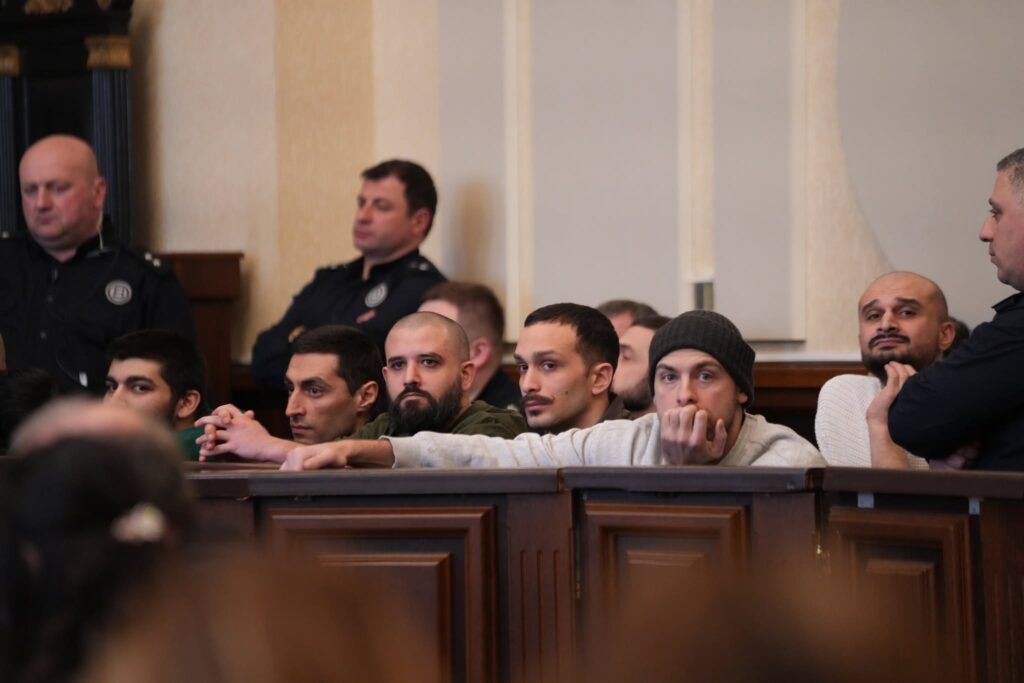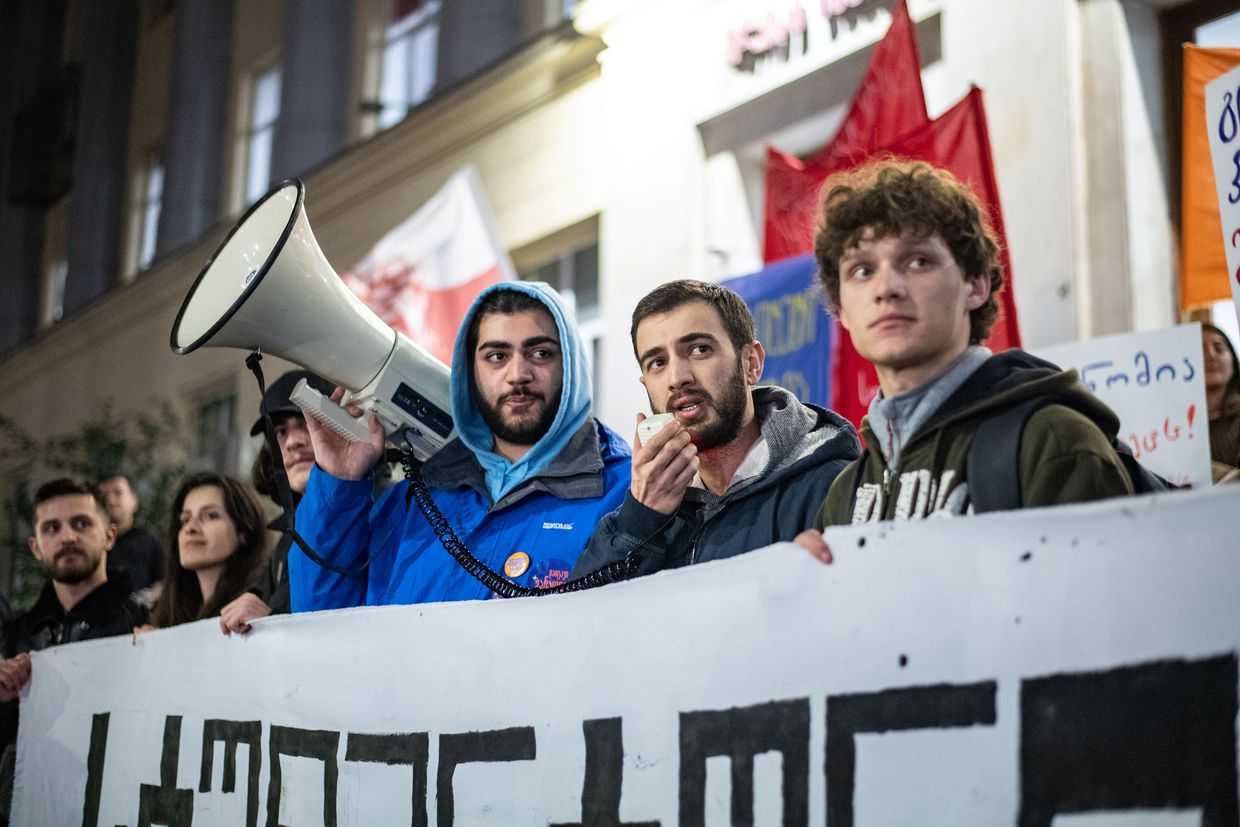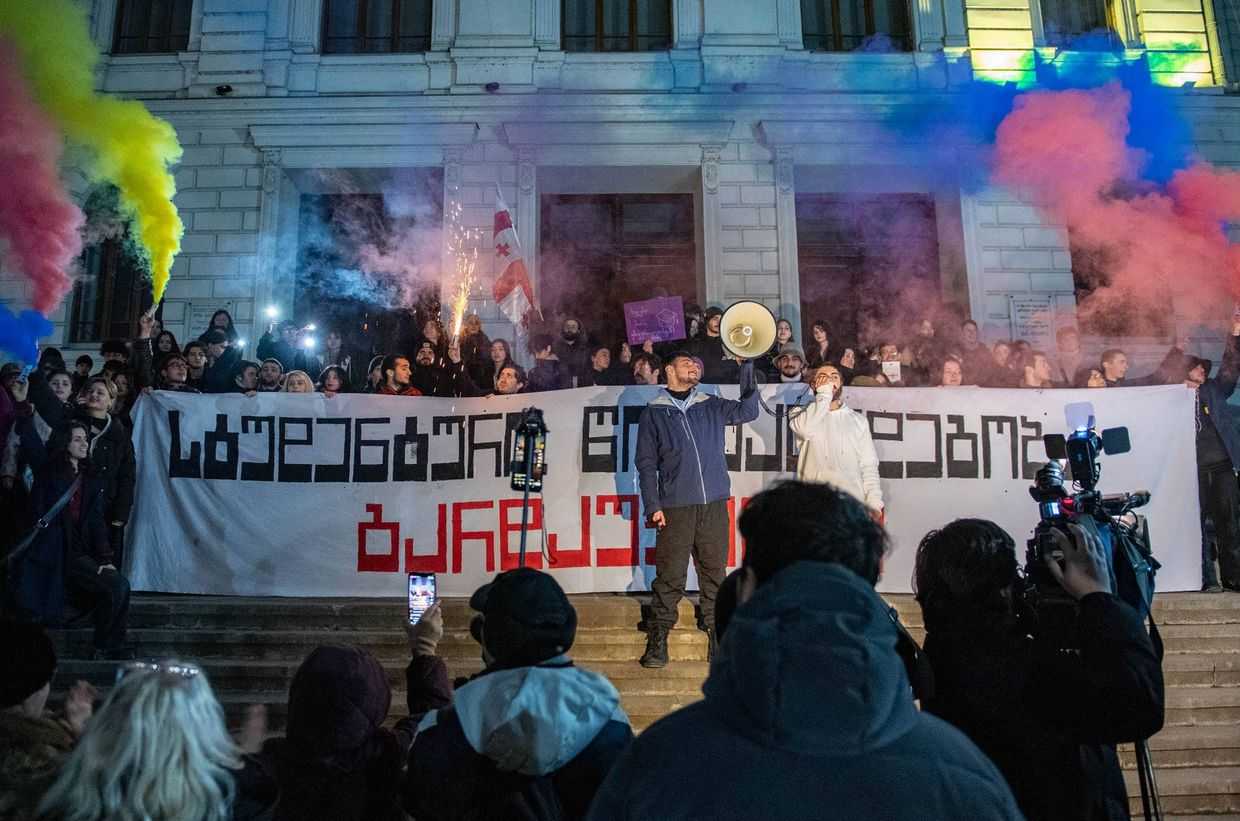
Tbilisi City Court has acquitted Nika Katsia, a protester who was detained during the ongoing anti-government protests on drug charges. He is the third protester to be acquitted of drug charges.
Judge Tamar Mchedlishvili announced the verdict on Wednesday — the same day that two other judges sentenced 13 other protesters to two-year prison terms on charges related to the protests. A day earlier, Mchedlishvili herself sentenced eight protesters to prison terms ranging from two to two and a half years.
Katsia’s acquittal was met with applause from his supporters gathered in the courthouse yard.
In his closing statement delivered before the verdict, Katsia said that he ‘will not retreat an inch’.‘I was born for freedom, and when my freedom is restricted alongside those guys [the other detainees], I will do everything [against it] and keep fighting’, he stated, as quoted by Netgazeti.
Katsia was detained while leaving his home to attend the protest on 7 December, nine days after the beginning of the demonstrations fueled by the suspension of Georgia’s EU membership bid by the ruling Georgian Dream party.
The investigation accused Katsia of illegally acquiring and possessing 14 grammes of drugs, a crime that carries a sentence of 8 to 20 years or life imprisonment.
Indigo quoted Katsia as saying that the police mocked him and subjected him to verbal abuse during his detention.
‘When I realised what they were doing, I begged them not to plant [drugs]. When my eyes filled with tears, they started mocking me even more’, he said.
According to his lawyer, not a single neutral observer was present during the search, which is illegal. Moreover, the case did not include any video that would substantiate the prosecution’s claims.
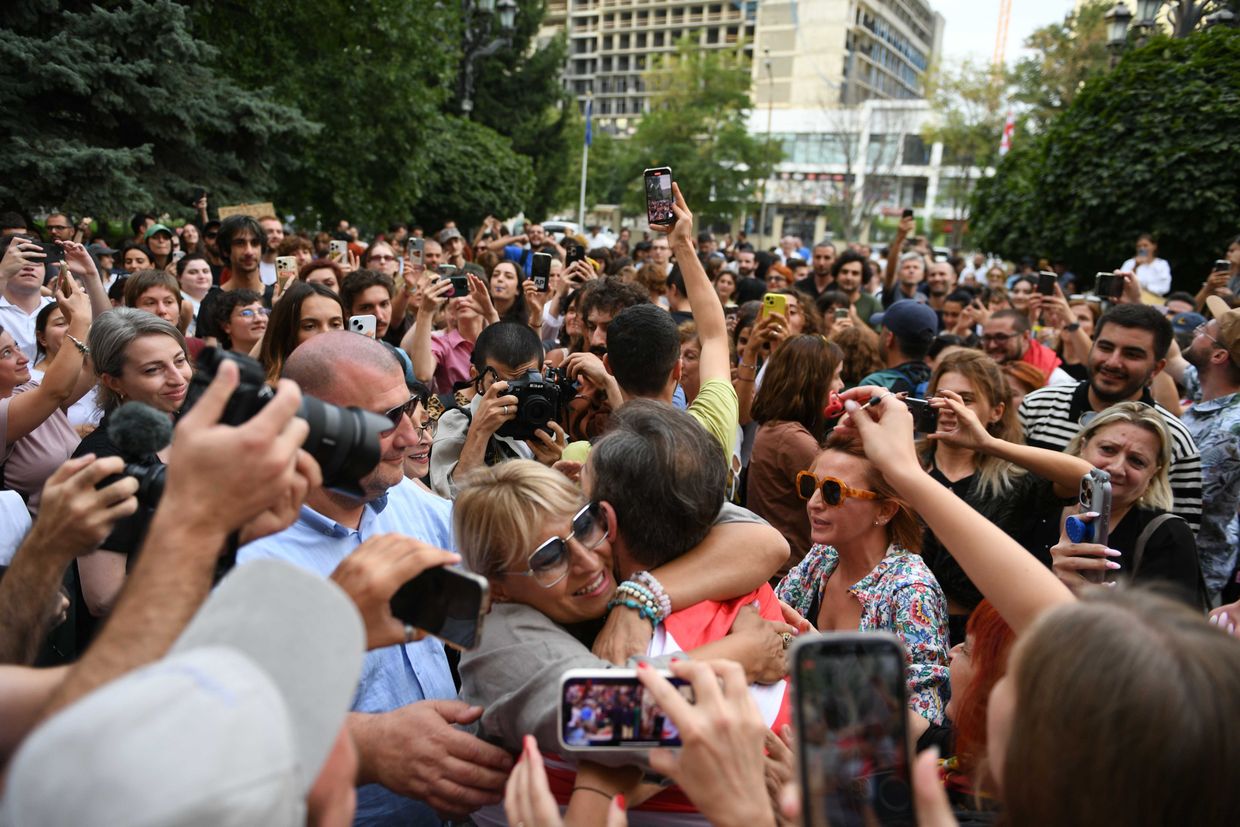
During the court proceedings, the prosecution explained that the police were unable to secure video evidence because Katsia resisted, with two officers attempting to detain him while a third was filling out the report.
Regarding a neutral witness, the case investigator stated that there was no one on the street around the police who could be called as a witness, nor did anyone respond when knocking on the door of a nearby house to serve as a witness.
After Katsia’s detention, in December, his lawyers approached the National Bureau of Expertise to conduct a drug test using a hair sample, which can retain information about drug use for at least three months. The bureau carried out the analysis in February and found no trace of drugs.
Katsia was one of six demonstrators who faced charges not related to the rallies, but of illegal possession of drugs. However, their cases have been widely perceived by critics as being politically motivated.
Two of them — Tedo Abramov and Giorgi Akhobadze — were acquitted in August and released by the court, with the verdicts citing an insufficient amount of evidence. However, another individual, Russian citizen Anton Chechin, who got married in Georgia and participated in the demonstrations, was sentenced to 8.5 years in prison by the same court on Tuesday.
Unlike in the acquitted cases, Chechin’s case involved a person presented by the prosecution as a neutral witness — an interpreter who was present during the search to facilitate communication between the police and the defendant. However, the defence questioned her credibility, arguing that an interpreter provided by law enforcement could not be considered an impartial witness.
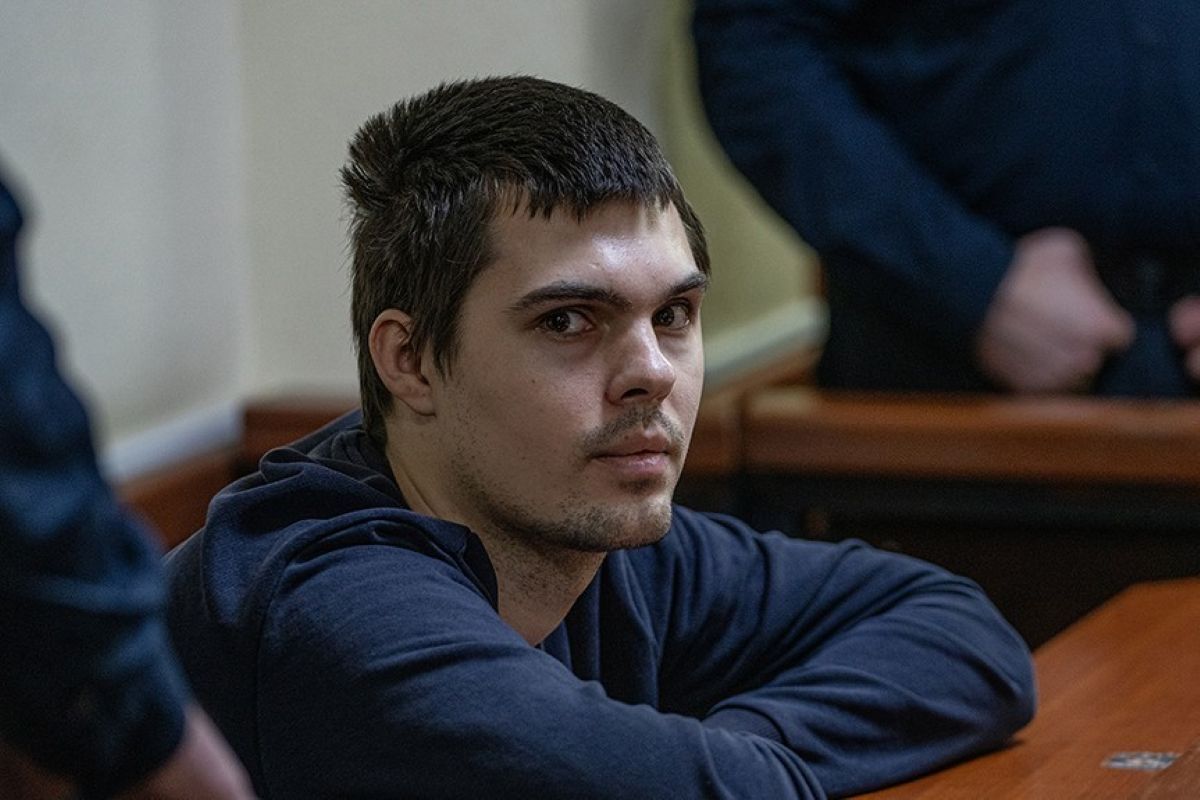
Two other individuals detained on drug-related charges — Russian citizens Anastasia Zinovkina and Artem Gribul, who also resided in Georgia and participated in the protests — are still awaiting their verdicts.
The latest wave of protests in Georgia began on 28 November 2024, when Georgian Dream announced the suspension of the country’s EU membership bid. The first phase of demonstrations saw heavy clashes and brutal police violence against protesters and journalists.
Hundreds of people have been detained, with criminal cases launched in over 50 instances. Several protesters have already been convicted and sentenced to years in prison. Their release — along with calls for new parliamentary elections — has become one of the demonstrators’ central demands.
